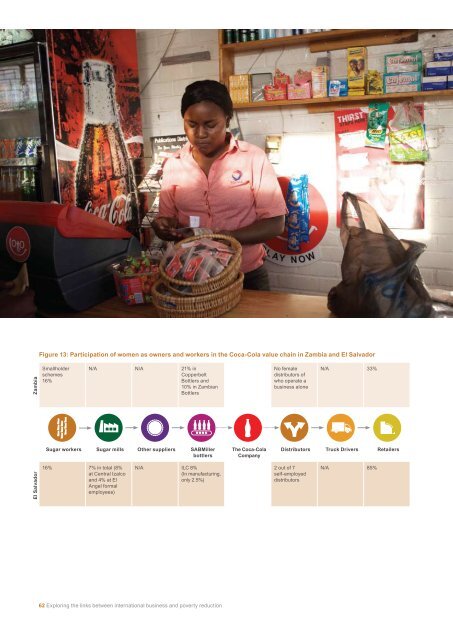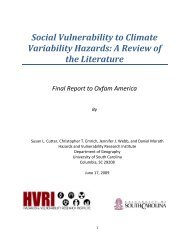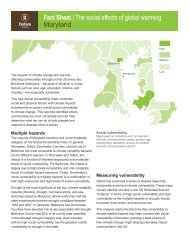Poverty Footprint Study on how the Coca Cola - Oxfam America
Poverty Footprint Study on how the Coca Cola - Oxfam America
Poverty Footprint Study on how the Coca Cola - Oxfam America
Create successful ePaper yourself
Turn your PDF publications into a flip-book with our unique Google optimized e-Paper software.
Zambia<br />
El Salvador<br />
Table: Participati<strong>on</strong> of women as owners and workers in <strong>the</strong><br />
<strong>Coca</strong>-<strong>Cola</strong> value chain in Zambia and El Salvador<br />
Figure 13: Participati<strong>on</strong> of women as owners and workers in <strong>the</strong> <strong>Coca</strong>-<strong>Cola</strong> value chain in Zambia and El Salvador<br />
Smallholder<br />
schemes<br />
16%<br />
N/A N/A 21% in<br />
Copperbelt<br />
Bottlers and<br />
10% in Zambian<br />
Bottlers<br />
Sugar workers Sugar mills O<strong>the</strong>r suppliers SABMiller<br />
bottlers<br />
16% 7% in total (8%<br />
at Central Izalco<br />
and 4% at El<br />
Angel formal<br />
employees)<br />
N/A ILC 8%<br />
(In manufacturing,<br />
<strong>on</strong>ly 2.5%)<br />
62 Exploring <strong>the</strong> links between internati<strong>on</strong>al business and poverty reducti<strong>on</strong><br />
The <strong>Coca</strong>-<strong>Cola</strong><br />
Company<br />
No female<br />
distributors of<br />
who operate a<br />
business al<strong>on</strong>e<br />
N/A 33%<br />
Distributors Truck Drivers Retailers<br />
2 out of 7<br />
self-employed<br />
distributors<br />
N/A 85%




